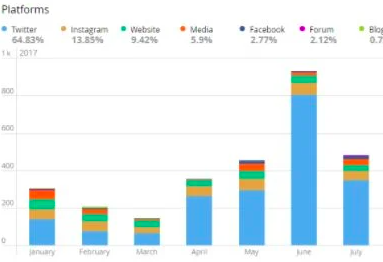Case Study: Meet the Flexitarians
The Problem
The market research team at a food company noticed that sales of one of its heat-and-serve meal products were growing very quickly in certain geographies. After conducting demographic studies, they found that the areas in question had particularly high concentrations of vegetarians. However, while most of the product’s ingredients were plant-based, the meals did include some meat, which would make them unattractive to vegetarians. After further research, the team found several articles written by popular “flexitarian” bloggers naming their product as an interesting option for those following a flexitarian diet.
Flexitarians – aka semi-vegetarians – primarily eat plant-based diets, but unlike pure vegetarians they also occasionally consume meat. The company had never intentionally targeted the flexitarian market, nor did the market research team know much about the alleged benefits of a flexitarian diet. The bloggers had cited many potential benefits of low-meat diets, but had provided very few references to scientific data backing up their claims. The team realized that in order to pursue an exciting new potential market opportunity, they first needed a much clearer understanding of that market as well as insight into the latest scientific findings on the benefits and drawbacks of low-meat diets.
Critical Issues
Scientific Insight Niche Market Perspectives
The Solution
Maven conducted two Electronic Surveys. The first Survey sought perspectives from individuals who were professionally involved with various diet movements, including vegetarianism, flexitarianism, pescatarianism, paleo, etc. Participants in this Survey included recipe book authors, bloggers, lecturers, and fitness professionals and sought insights into the types of food products that are embraced by diet, how those products are marketed, and the overall sizing of and trends within each related market.
The second Electronic Survey targeted clinical professionals familiar with academic studies of the effects of different diets. This included dietitians, nutritionists, endocrinologists, and other researchers. At the conclusion of both studies the customer had a clearer understanding of the market potential for food products targeted toward flexitarians as well as how to effectively craft and market those products. In addition, the Survey results delivered a comprehensive landscape of the various types of plant-based proteins available for use in such products with detailed insights into the costs, nutritional benefits, flavor profiles, and overall consumer desirability of each ingredient.
”Food fads are everywhere today. From low carb to gluten free to paleo, it seems as if theories on the best diets are changing every day. It’s almost impossible to keep up, much less sort out what is clinically proven and what is mere conjecture. Access to real nutritional expertise can make the difference between embracing a real trend that makes people healthier and hopping on a becomes invaluable to our business.”
– Director of Food and Beverage Marketing







